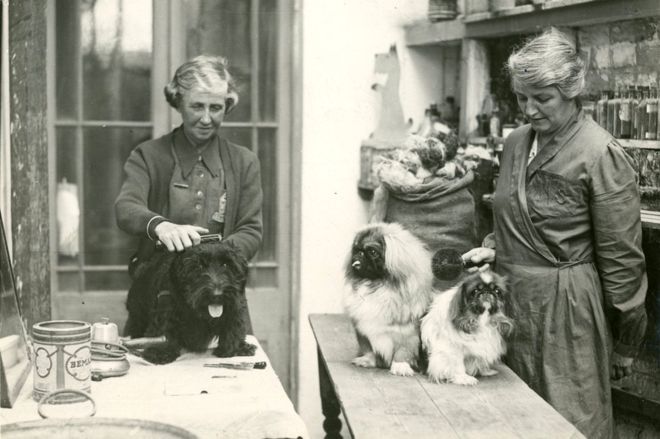The Women’s Voluntary Service (WVS) was founded in 1938 to train women to help with air raid precautions in England during World War II. It developed into an organization for running emergency rest centers, feeding, first aid, and assisting with evacuating and billeting children.
The organization is now known as the Royal Voluntary Service (RVS). They are trying to raise money to digitize more than 300,000 diary pages and make them available online.
Recently, photos from their archives have been released showing members knitting with dog hair, transporting toddlers in donkey carts, and serving tea and sympathy. The archive has UNESCO status and is ranked alongside other historical texts such as the Domesday Book and the Death Warrant of King Charles I.
“It’s often the quiet voices of history which are the most revealing,” says historian Ruth Goodman. “They can be easily overlooked amongst the clamor of parliamentary speeches, gunfire, and official pronouncements, but the diaries and letters of a host of less-celebrated lives speak of the true temperature of the times. It is these unassuming thoughts, feelings and reports which tell us what was really happening behind the rhetoric.”
The “Hidden Histories of a Million Wartime Women” project tells about the “everyday heroism” of female volunteers from over 2,000 cities, towns, and villages across Britain.
By 1940, one in 10 women was a member of the WVS. “They held the country together working tirelessly on the Home Front, but now they have been forgotten,” the modern-day RVS says.
“They modestly refused recognition in their own time and their voices, those of ordinary women from our shared past, have now fallen silent.”
Matthew McMurray is the archivist at the RVS. He’s spent six years sorting through “tens of thousands of pieces of fragile paper” to get to a point where the documents can be digitized. The RVS has a crowd-funding campaign on Kickstarter. They are trying to raise £25,000.
